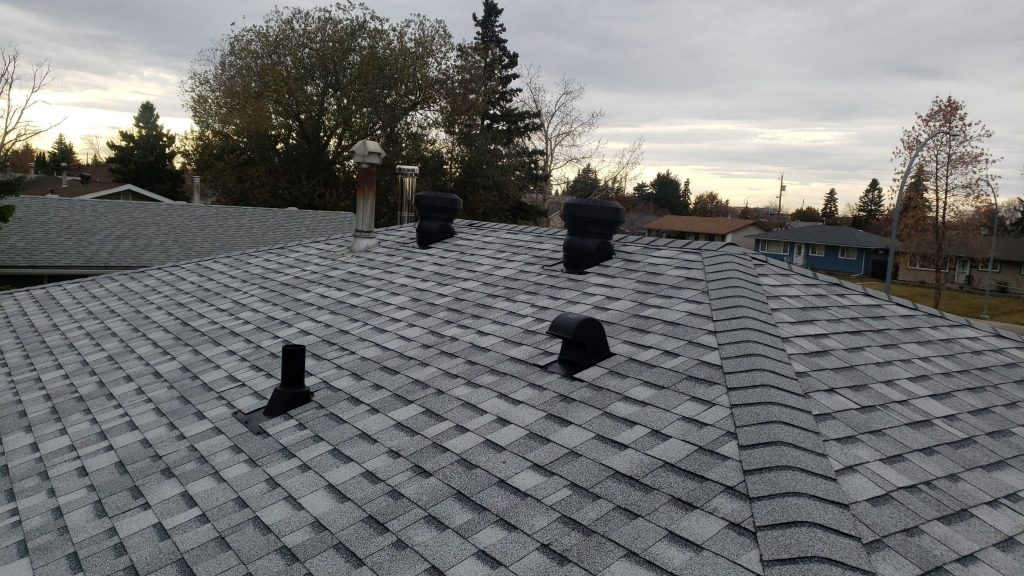When is the Best time of Year to Replace Your Roof?
While you may be ready to pick up the phone and call a local contractor, you may want to consider the time of year and if now is the best season in which to have your roof replaced.
Is it time for you to replace your roof?
While you may be ready to pick up the phone and call a local contractor, you may want to consider the time of year and if now is the best season in which to have your roof replaced.
The truth is, you can have your roof replaced at any time of year – but some seasons provide more advantages than others.
Read on to find out what time of the year you should replace your roof:
Is It Okay to Replace My Roof in the Wintertime?
While not the best time of year to schedule a roof replacement, you can replace your roof in the winter.
However, roof replacement in the winter can be especially challenging – especially in northern cities that experience cold and frequently long winters.
But it’s doable. Roof replacement in the winter time requires proper technique from start to finish.
For instance, asphalt shingles become brittle in the colder temperatures so it’s important to make sure the shingles are warm before installation.
Also, when the temperature drops below 40 degrees, self-adhering shingles will have difficulty sticking to the roof. These types of shingles would have to be installed on warmer winter days.
So while not impossible, there are many considerations that have to be taken when performing a roof replacement in the wintertime.
And, because not many roofs are installed during the winter, you may be able to get a good deal on the installation.
What About Summer?
With consistent and warm weather throughout the summertime, this season may seem like the best choice when it comes to having your roof replaced.
However, this is peak season for roofers, so scheduling the job may prove to be difficult.
Ideally, you would want to have your roof replaced in the early days of summer, when the winter melt and spring rains have stopped and the extreme heat of summer hasn’t begun yet.
Trying to book for this time of year could mean having your appointment pushed into late summer anyway, which could see the work being done on very hot days.
Not only does this make the job more difficult for the roofers, but it can be detrimental to the roofing materials as well.
Extreme heat can melt asphalt shingles, making them less durable during installation and more prone to becoming damaged.

Is Spring the Best Time to Replace My Roof?
Yes, it’s definitely one of them.
Spring is an ideal time of the year to have your roof replaced, since the temperatures are beginning to increase but are not as hot as summertime.
And with the moderate temperatures, asphalt shingles have plenty of time to adhere to the roof and create the necessary seal to keep them in place.
Many homeowners consider roof replacement in the spring after experiencing leaks, drafts and cave-ins due to harsh winter weather.
However, the weather can be quite unpredictable in the spring, especially when it comes to rain, which can create delays.
Luckily, good roofers know how to accommodate bad weather and are often prepared with backups plans when the spring rains decide to fall.
If you’re considering having your roof, spring is a good time to book a roofing company.
The Best Time of Year to Replace Your Roof
Many roofing experts agree that the absolute best time of the year to replace your roof is the fall.
During the fall, the weather is still pleasant but not too hot. It is still warm enough to ensure that asphalt shingles adhere properly for good thermal sealing.
Also, by this time, busy contractors have finished their summer installations and are more likely to have time to book you in for a roof replacement.
Apart from the exterior conditions being just right to have your roof replaced, doing so in the fall means that you can address any damages that occurred during the spring and summer, such as leaks and storm damage (hail, rain, etc.).
It also means that you can prepare for the snowy onslaught of winter. If the integrity of your shingles are compromised, heavy snow and ice can overload your roof flashing and tie-ins.
Having your roof replaced means that the structure is strengthened and less prone to winter weather damage.
It also means that your home will experience less heat loss, saving you money by using energy-efficient roofing materials – they keep the heat from the sun from warming your home in the summer and prevents heat from escaping in the winter.
So, if you’re looking to have your roof replaced, consider booking the installation during the fall.
Ready to Replace Your Roof?
No matter what time of year you are looking to have your roof replaced, as long as you take the pros and cons of each season into consideration, you won’t have any surprises.
If you have any questions or concerns about having your roof replaced in whatever season you choose, you can always speak to a professional roofer and contractor to get more information.



Comments are closed.